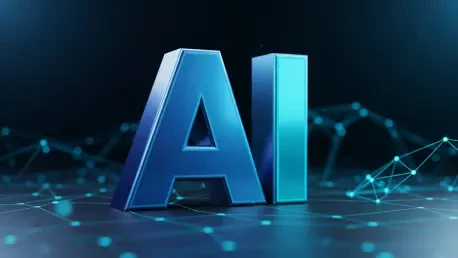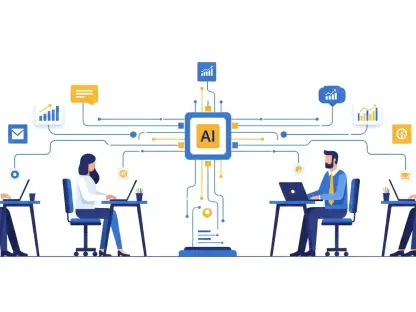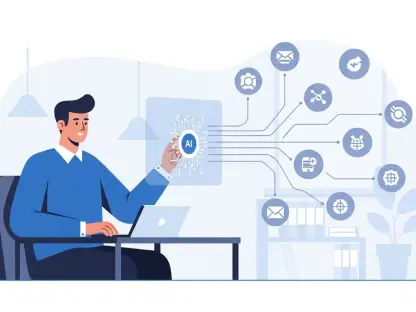Today, we’re thrilled to sit down with Anand Naidu, our resident development expert, who brings a wealth of knowledge in both frontend and backend technologies. With a deep understanding of various coding languages and the ever-evolving tech landscape, Anand offers invaluable insights into the role of programming certifications in today’s competitive industry. In this conversation, we explore the relevance of certifications amidst AI advancements, their benefits and limitations, and the specific credentials that can give developers an edge. Join us as we dive into Anand’s perspective on balancing formal credentials with hands-on experience and where he sees the future of tech skills heading.
How do you view the importance of programming certifications in today’s tech environment?
I think certifications still have a significant place in tech, but their role has definitely evolved. They’re not just a ticket to a job anymore; they’re more about showing you can solve complex problems and adapt to modern tools. With the rapid pace of innovation, especially with AI, certifications can signal that you’re keeping up. However, they’re only part of the picture—real-world application is just as critical.
Do you feel certifications carry the same weight now as they did a few years ago?
Not quite. A few years back, a certification could almost guarantee an interview because it was a clear benchmark of skill. Now, with AI tools automating so much of the grunt work and the job market getting tighter, employers are looking beyond just a certificate. They want to see how you apply that knowledge under pressure. That said, for certain specialized roles, like cloud architecture, they’re still a strong differentiator.
How do you see the rise of AI tools impacting the role of certifications in development?
AI is a game-changer. It’s automating tasks that entry-level developers used to handle, which means fewer traditional roles and more competition. Certifications are adapting, though—they’re focusing less on rote coding and more on system design and instructing AI tools. For example, certifications in cloud platforms or AI integration are becoming crucial because they teach you to work alongside these technologies, not just code in isolation.
Have you pursued any programming certifications yourself, and if so, which ones stand out?
Yes, I’ve earned a few over the years, including the AWS Certified Developer—Associate and Certified Kubernetes Application Developer (CKAD). These were particularly relevant to projects I was working on at the time. They helped me dive deeper into cloud solutions and container orchestration, which are huge in modern development. I’ve also kept an eye on security-focused credentials since that’s becoming non-negotiable in every project.
What drove you to choose those specific certifications?
It was a mix of personal interest and market demand. I saw cloud computing taking over, and AWS was—and still is—a leader in that space, so that was a no-brainer. Kubernetes came up because I was working on scalable applications, and I wanted to master container management. Plus, I knew these were skills employers were actively seeking, so it aligned with both my career goals and industry trends.
How have those certifications impacted your career or daily work?
They’ve been a big boost, especially early on. The AWS certification opened doors to projects I wouldn’t have touched otherwise, giving me credibility with clients and teams. On a day-to-day basis, the structured learning from certifications gave me a solid foundation to troubleshoot and build more efficiently. But I’ll be honest, it’s the practical application afterward that really cemented the value—certifications are a starting point, not the finish line.
In your opinion, who benefits more from certifications—beginners or seasoned developers?
I’d say both, but in different ways. For beginners, certifications are almost essential—they provide structure and prove you’ve got the basics down, which is huge when you lack experience. For seasoned developers, they’re more about specialization or staying relevant. If you’ve been in the game for a while, a certification in something like AI or cloud can show you’re not stuck in old ways and can pivot to new tech.
What are the biggest advantages of earning a programming certification?
One major advantage is that they offer a clear, documented way to show your skills. It’s not just about saying you know something; it’s proof you’ve been tested on it. They also force you to learn actively—whether it’s building systems for AWS or deploying with Terraform, you’re doing the work, not just reading about it. Plus, they signal to employers that you’re committed to growing, which can set you apart in a crowded field.
On the flip side, what are some limitations or downsides of relying on certifications for career growth?
The biggest downside is that certifications don’t always equal real-world competence. Some are too theoretical or focus on passing a test rather than solving messy, production-level problems. Also, tech moves so fast that a certification from even a couple of years ago might not be relevant anymore. I’ve seen developers with a stack of certs struggle because they prioritized badges over hands-on problem-solving.
How do you balance certifications with practical experience when building your skill set?
It’s all about integration. Certifications give you a framework, but experience is where you test and refine that knowledge. I always try to pair a certification with a project—say, after getting certified in Kubernetes, I’d deploy an app using it. Neither one trumps the other; they’re complementary. Employers want both, so I make sure I’m not just collecting credentials but also building a portfolio of real work.
Which programming certifications do you think are most sought-after in the industry right now?
Right now, cloud certifications like AWS, Microsoft Azure, and Google Cloud Platform are at the top of the list. They’re in demand because so many companies are moving to distributed systems. DevOps tools like Kubernetes and Docker are also huge since automation and reliability are critical. And with AI’s rise, certifications in machine learning frameworks like TensorFlow are gaining traction as businesses embed AI into everything.
Why do you think cloud-based certifications are so popular at the moment?
Cloud is the backbone of modern tech. Most businesses aren’t building standalone systems anymore; they’re integrating with platforms like AWS or Azure for scalability and efficiency. These certifications show you can design and manage those environments, which is a must-have skill as distributed systems become the norm. Plus, cloud providers offer managed services that simplify complex workflows, so knowing their ecosystems gives you a serious edge.
Are there any certifications in areas like DevOps or security that you’d particularly recommend?
Absolutely. For DevOps, the Certified Kubernetes Application Developer (CKAD) is fantastic because containerization is everywhere, and Kubernetes is the gold standard. On the security side, something like CompTIA Security+ or Certified Ethical Hacker is critical—cyber threats are growing, and every company needs developers who can secure their code. These aren’t just nice-to-haves; they’re becoming baseline expectations in many roles.
What is your forecast for the future of programming certifications in the tech industry?
I see certifications becoming even more specialized and tied to emerging technologies. As AI, quantum computing, and edge computing grow, we’ll see credentials that focus on integrating these into development workflows. I also think there’ll be a shift toward continuous learning models—think micro-certifications or badges that you update regularly rather than one-and-done exams. The key will be staying agile because tech isn’t slowing down, and neither can our skills.









